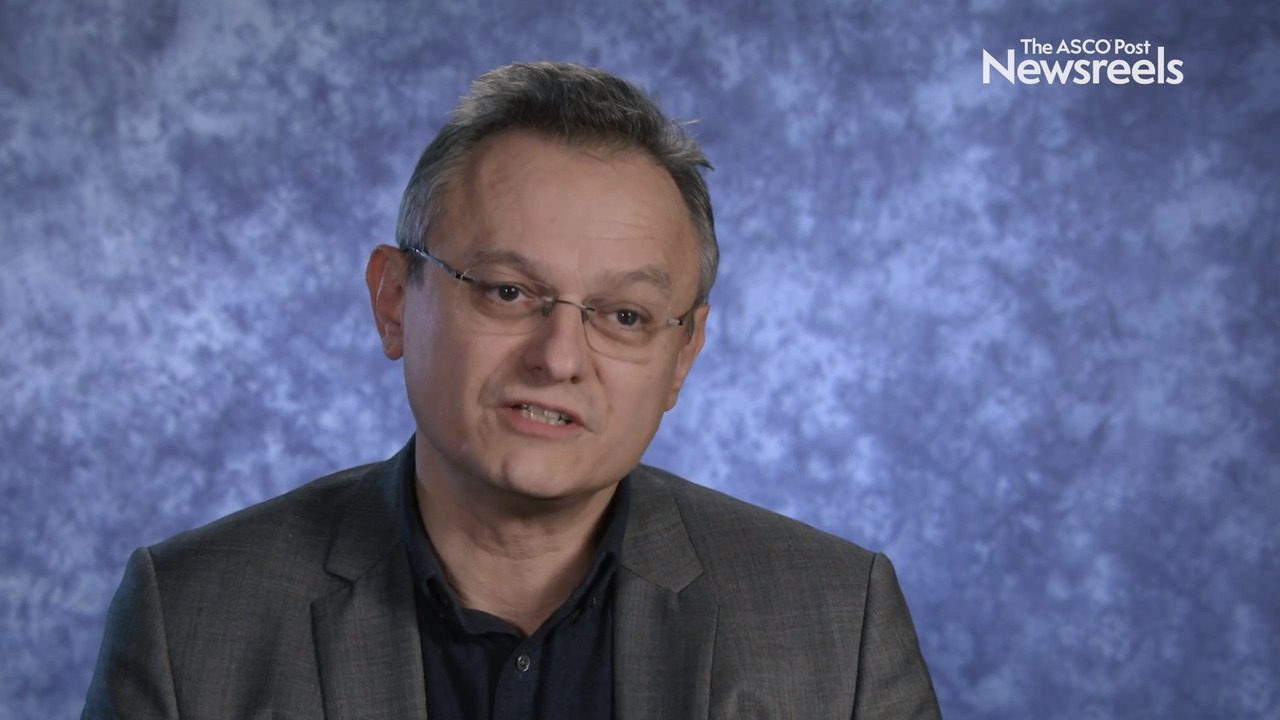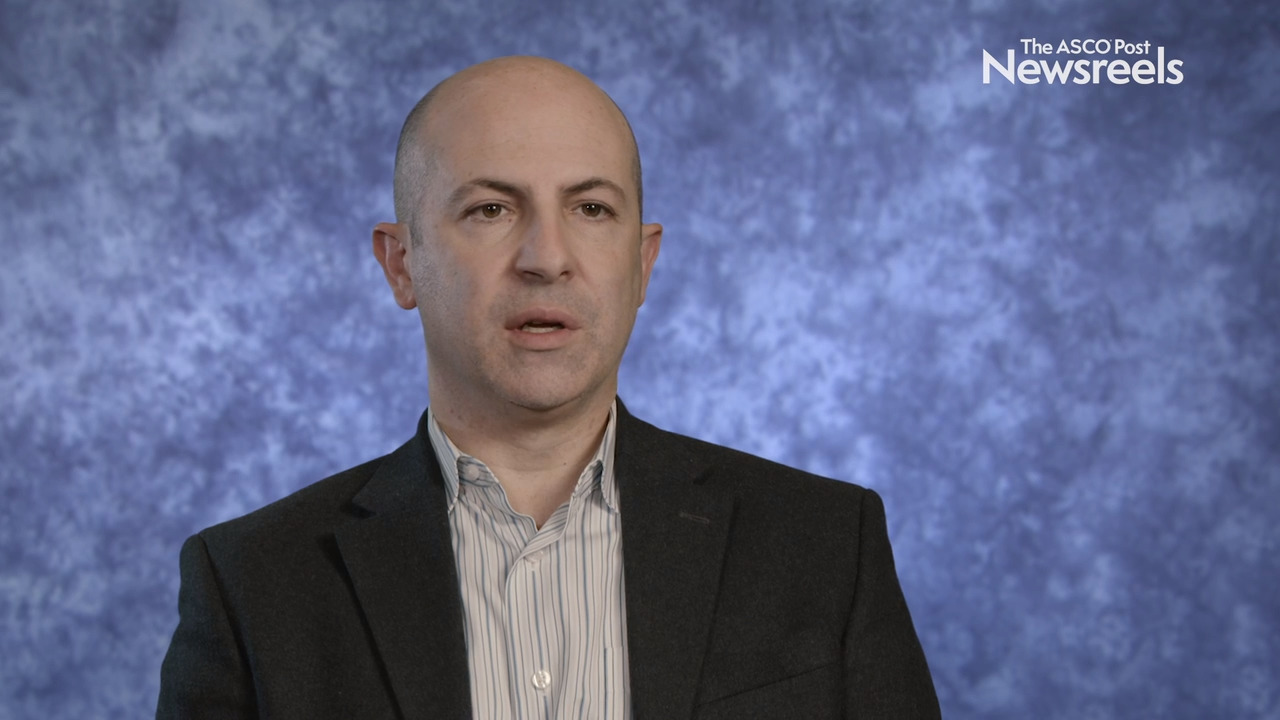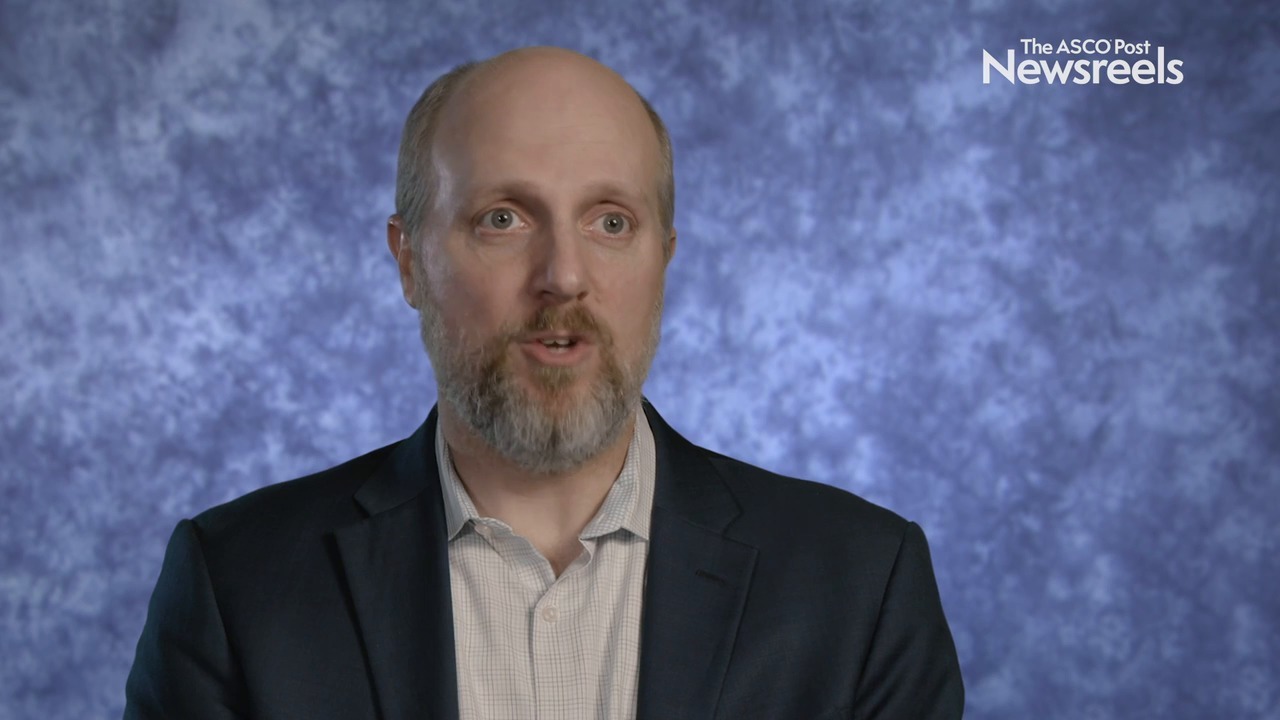Eileen M. O’Reilly, MD, on Pancreatic Adenocarcinoma: Gemcitabine, Cisplatin, and Veliparib
2020 Gastrointestinal Cancers Symposium
Eileen M. O’Reilly, MD, of Memorial Sloan Kettering Cancer Center, discusses phase II trial findings showing that cisplatin and gemcitabine, with or without veliparib, exceeded a prespecified response rate for patients with pancreatic adenocarcinoma and a germline BRCA/PALB2 mutation (Abstract 639).
Franck Pagès, MD, PhD, of the Hôpital Européen Georges Pompidou, discusses study findings from the prospective IDEA France cohort study of patients with stage III colon cancer treated with mFOLFOX6. The study showed that patients with an intermediate or high Immunoscore seemed to benefit from 6 months of mFOLFOX6 treatment compared with 3 months (Abstract 10).
Thomas Yau, MBBS, of the University of Hong Kong, discusses this triplet combination, which yielded better responses than doublet combination therapy in patients with advanced liver cancer, but with more severe adverse events and more treatment discontinuations (Abstract 478).
Zev A. Wainberg, MD, of the UCLA Medical Center, discusses the first subset analysis of how a combined positive score in gastric and gastroesophageal junction cancers related to the efficacy of pembrolizumab in PD-L1–positive disease (Abstract 427).
Scott Kopetz, MD, PhD, of The University of Texas MD Anderson Cancer Center, discusses phase III findings from the BEACON CRC trial, which had demonstrated that the triplet regimen of encorafenib, cetuximab, and binimetinib significantly improved overall survival in patients with a BRAF V600E mutation. The new analysis showed that the regimen also led to substantial improvement in patient-reported quality of life compared with current standard of care (Abstract 8).
Peter R. Galle, MD, of the University Medical Center, Mainz, discusses patient-reported outcomes from this phase III study, which showed the combination of atezolizumab plus bevacizumab vs sorafenib is well tolerated and may represent a new standard of care in the first-line setting for unresectable liver cancer (Abstract 476).





